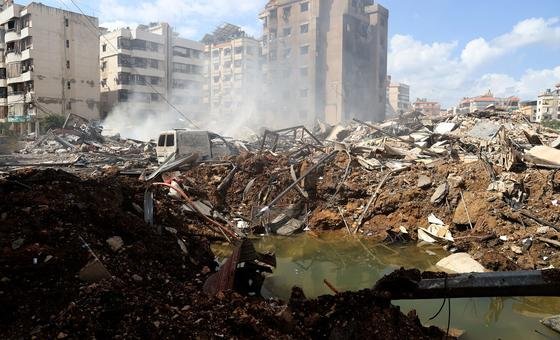Farhan Haq, deputy spokesman for the UN secretary-general, told reporters in New York that hundreds of people were reported to have been displaced in Beirut and other parts of the country last night. This happened after Israel issued the order.
Shelters are becoming overcrowded due to the increase in the number of displaced people. As of last weekend, 1,100 shelters had been set up in Lebanon, housing 192,000 displaced people.
Over 900 shelters have reached capacity. The largest number of displaced people is estimated in the capital Beirut and Mount Lebanon Governorate.
Israeli airstrikes have damaged critical infrastructure. According to the UN Agency for Sexual Reproductive Health (UNFPA), a center providing safe spaces for women and girls and a primary health center were destroyed in the attack last night.
The center provides counseling, legal aid and other services, especially to hundreds of women who have experienced gender-based violence.
Relief operations are continuing
Despite these challenges, UN humanitarian partners continue their efforts to deliver relief to Lebanon’s need.
A convoy of six trucks with the support of the United Nations Children’s Fund, the World Food Program and the United Nations humanitarian agency has delivered relief to Baalbek Governorate.
Deputy Spokesperson Farhan Haque said that this is the first such supply since September. For two months, 1,000 people have been sent foodstuff in caravans as a sign of assistance. Apart from this, water has been provided in bottles, mattresses, blankets and other items.
Authorities in Baalbek and Bekaa governorates have been urged to strengthen health infrastructure, especially in remote areas, the UN spokesman said.
The International Organization for Migration (IOM) estimates that more than 8 million Lebanese have been displaced within the country’s borders.
The UN refugee agency says 420,000 people have crossed the border into Syria, while 17,000 are seeking refuge in Iraq.

